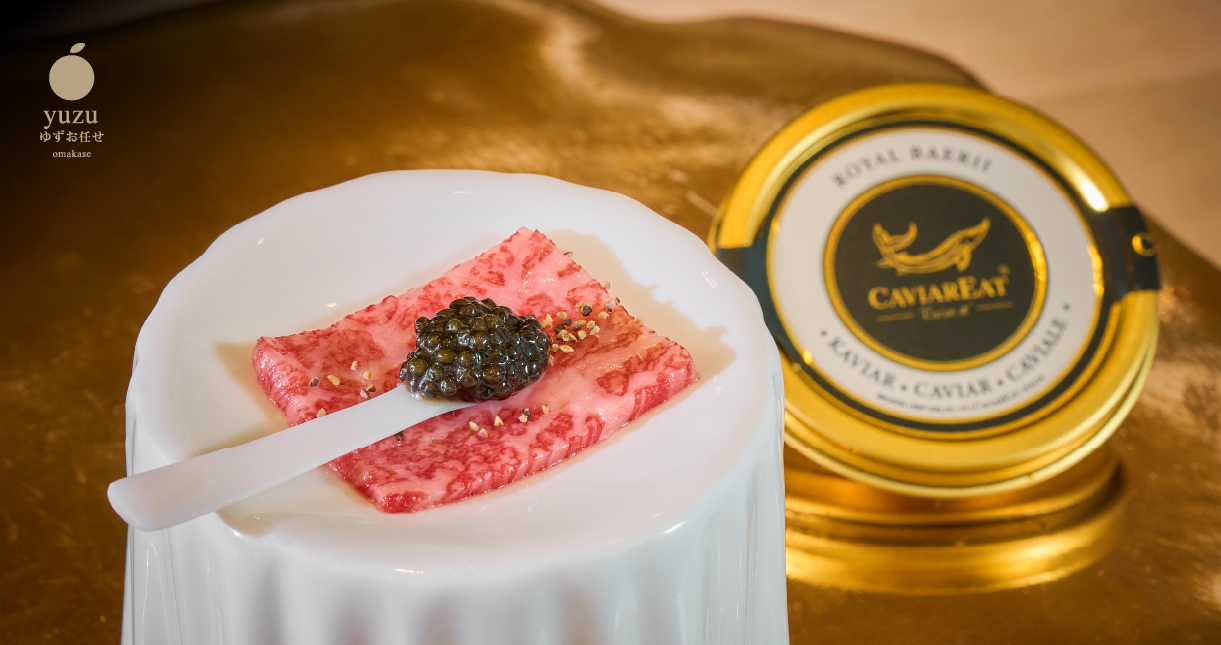
Japanese Food Culture: How It Continues to Shape Global Cuisine
Japan’s Influence on Global Culinary Trends Japanese food culture has long been celebrated for its elegance, simplicity, and connection to nature. Over the past few decades, Japanese cuisine has gone from being a regional specialty to a global culinary force, influencing food traditions and inspiring chefs around the world. The principles of fresh ingredients, seasonality, and the pursuit of umami have made Japanese cuisine a cornerstone of the global dining scene.
The World ● 2024 Oct 10
Japanese Food Culture: How It Continues to Shape Global Cuisine
At Yuzu Omakase, we honor these traditions, ensuring that every dish reflects the authentic spirit of Japanese culinary heritage. In this article, we’ll explore the impact of Japanese food culture worldwide and how Yuzu Omakase stays true to these cherished customs while offering a modern twist.
1. The Essence of Japanese Food Culture: Simplicity and Freshness
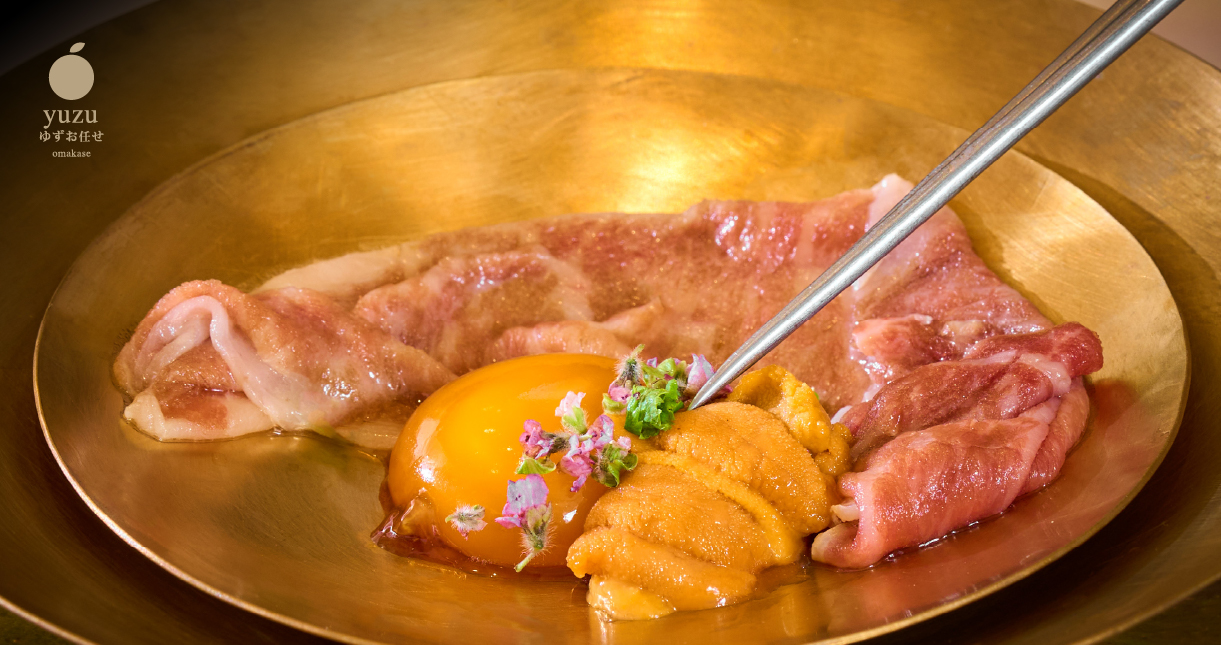
Japanese food culture is built on a foundation of simplicity and a deep respect for the natural ingredients used in each dish. These qualities have made Japanese cuisine stand out globally, where freshness, minimal processing, and seasonal ingredients have become the gold standard for chefs and restaurants around the world.
The Philosophy of “Shun” in Japanese Cuisine
The Japanese concept of shun, or eating ingredients at their peak of freshness and flavor, has greatly influenced global food trends. This focus on seasonality ensures that the ingredients used in each dish are at their most nutritious and flavorful, creating a natural balance in the meal. The philosophy of eating fresh, in-season ingredients has spread to international kitchens, inspiring chefs and diners to appreciate locally sourced produce and farm-to-table practices.
At Yuzu Omakase, we fully embrace the shun philosophy by selecting the freshest ingredients for our omakase menu, ensuring that each dish highlights the best of what the season has to offer.
Global Influence Highlight
The farm-to-table movement and focus on seasonal ingredients in global cuisine have been inspired by Japanese food culture’s emphasis on freshness.
2. Umami: Japan’s Gift to the World
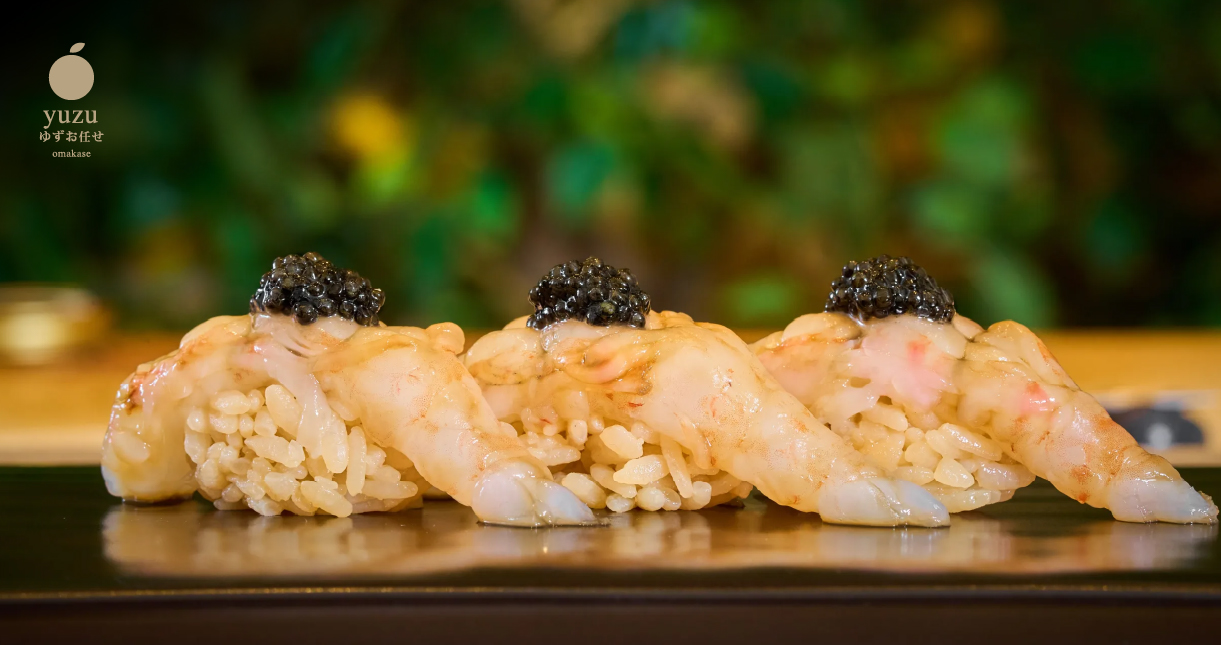
One of Japan’s most significant contributions to global cuisine is the introduction of umami, often described as the “fifth taste” after sweet, salty, sour, and bitter. Discovered in Japan in the early 20th century, umami refers to a savory taste found in foods like soy sauce, miso, seaweed, and fish. This taste profile has had a profound impact on culinary traditions around the world, encouraging chefs to seek depth and richness in their cooking.
Umami in Global Cuisine
The global recognition of umami has led to its incorporation in a wide range of cuisines beyond Japan. From French sauces to Italian pasta dishes, chefs around the world now use ingredients rich in umami to create more complex flavors. Soy sauce, miso, and dashi, all staples of Japanese cuisine, are increasingly found in international kitchens, reflecting how deeply this taste has permeated global food culture.
At Yuzu Omakase, we celebrate umami by using ingredients such as kombu (seaweed), bonito flakes, and fermented products like miso, all of which enhance the natural flavors of our dishes.
Global Influence Highlight
The global appreciation of umami has revolutionized how chefs craft dishes, resulting in more flavorful and balanced meals.
3. Japanese Cuisine's Global Expansion: From Sushi to Ramen and Beyond
Japanese food has become a global culinary force, with staples such as sushi, ramen, and tempura now enjoyed in nearly every corner of the world. As Japanese food continues to expand internationally, it has become an integral part of fine dining, casual street food, and everything in between.
Sushi: Japan’s Culinary Ambassador
Sushi, in particular, has been instrumental in introducing Japanese cuisine to global audiences. What started as a humble method of preserving fish has evolved into an art form, with sushi bars now found in cities across the globe. Today, sushi is recognized for its emphasis on precision, presentation, and balance of flavors. Many international chefs have also adopted sushi techniques, incorporating them into their own styles of cooking.
At Yuzu Omakase, we stay true to the tradition of sushi-making, ensuring that each piece of sushi is prepared with the utmost care, from the selection of fresh fish to the exacting knife work that creates the perfect slice.
Global Influence Highlight
Sushi has become a symbol of Japanese food culture worldwide, influencing the way chefs think about presentation and technique.
Ramen and Other Japanese Comfort Foods
While sushi dominates the fine dining scene, ramen has gained popularity as a global comfort food. From New York to London, ramen shops serve steaming bowls of this Japanese noodle soup, drawing food lovers with its rich, flavorful broths and hearty toppings. Other beloved Japanese dishes, such as tempura, yakitori, and gyoza, have also found their way into global kitchens, further solidifying Japan’s influence on world cuisine.
Global Influence Highlight
Japanese comfort foods like ramen and tempura have become part of global dining culture, bridging the gap between casual and gourmet cuisine.
4. Japanese Culinary Techniques That Have Influenced the World
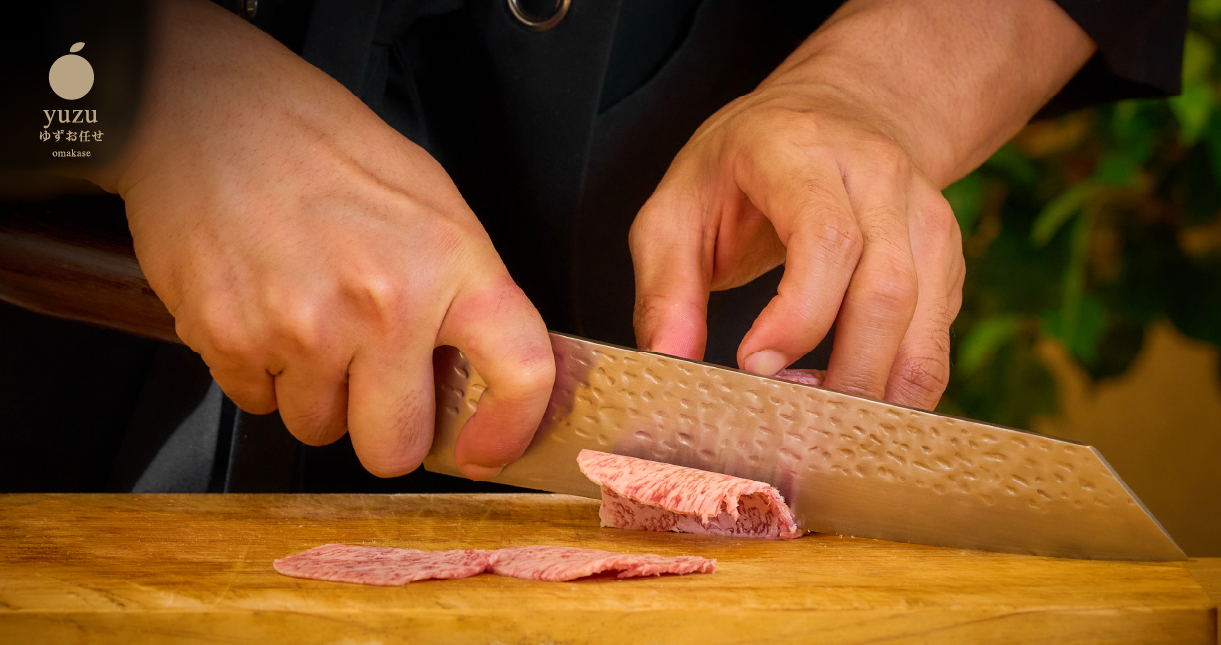
The influence of Japanese food culture is not limited to the ingredients used in the kitchen. Japanese culinary techniques, especially the emphasis on precision, balance, and mindful preparation, have profoundly impacted the way chefs around the world approach their craft.
Knife Skills and Precision
One of the most celebrated aspects of Japanese cuisine is the emphasis on knife skills. In Japanese kitchens, the knife is considered an extension of the chef’s hand, and its proper use is essential for ensuring the quality and presentation of dishes like sushi and sashimi. Chefs around the world have adopted these techniques, striving to achieve the same level of precision and control that Japanese chefs are known for.
At Yuzu Omakase, our chefs demonstrate their mastery of knife skills with each slice of fish, ensuring that the texture, flavor, and appearance of every dish are perfect.
Global Influence Highlight
The Japanese emphasis on precision knife work has influenced chefs globally, enhancing food preparation in both high-end and casual dining environments.
The Art of Fermentation
Fermentation is another traditional Japanese technique that has made its mark on global cuisine. Ingredients such as miso, soy sauce, natto, and pickled vegetables are key components of Japanese dishes, valued not only for their flavor but also for their health benefits. The global fascination with fermented foods has grown in recent years, with chefs and diners alike appreciating the complex flavors and gut health benefits they provide.
At Yuzu Omakase, we incorporate fermented ingredients into many of our dishes, ensuring that our menu reflects the depth of flavor and nutritional value that these ingredients offer.
Global Influence Highlight
The global trend of embracing fermented foods can be traced back to the traditional use of ingredients like miso and soy in Japanese cuisine.
5. Yuzu Omakase: Honoring Japanese Food Culture in a Global Context
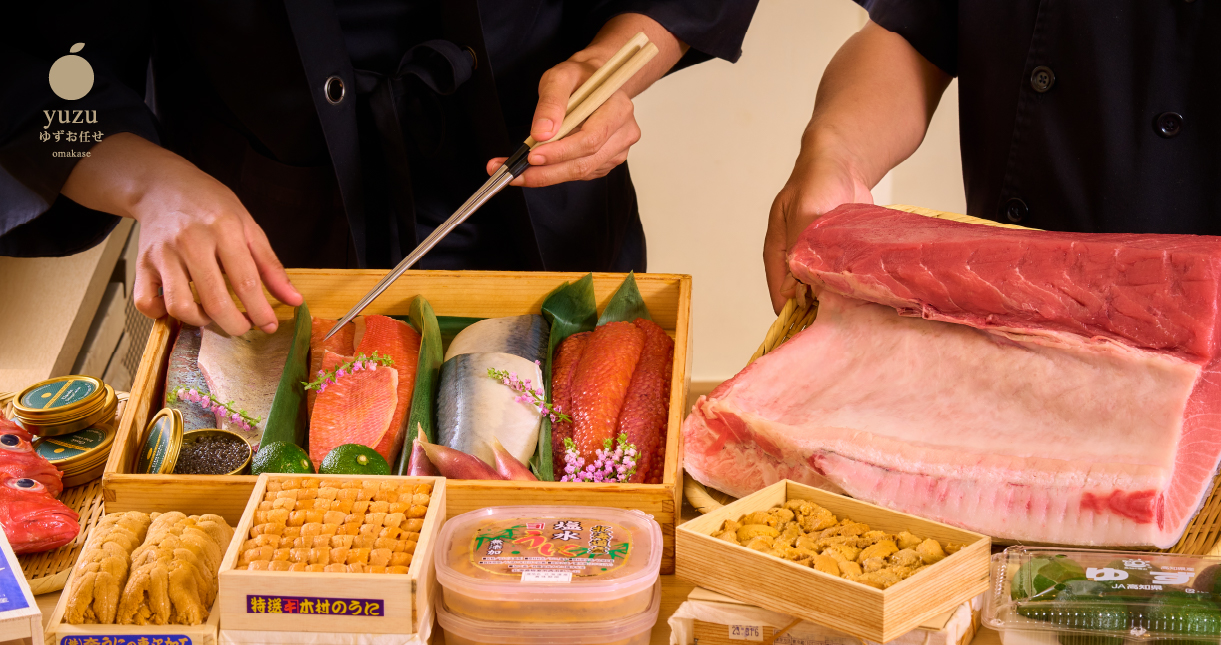
While Japanese cuisine has inspired chefs and food lovers worldwide, Yuzu Omakase remains dedicated to preserving the authenticity of traditional Japanese dining. We pride ourselves on offering an omakase experience that stays true to the core principles of Japanese food culture, while also embracing modern techniques to elevate each dish.
Seasonal Ingredients and Sustainability
At Yuzu Omakase, we focus on using seasonal, fresh ingredients, staying true to the Japanese philosophy of enjoying food at its peak. We source our seafood from trusted suppliers, ensuring that it meets the high standards of quality and sustainability that Japanese cuisine demands. This commitment to sustainability not only honors the traditions of Japanese culinary practices but also reflects a growing global awareness of ethical dining.
Yuzu Omakase Highlight
Our commitment to using seasonal and sustainable ingredients reflects our dedication to upholding the traditions of Japanese food culture.
The Art of Modern Omakase
While we honor traditional techniques, Yuzu Omakase also embraces modern culinary innovations, ensuring that our guests enjoy a contemporary dining experience that is both rooted in tradition and forward-thinking. By blending classic Japanese flavors with modern presentation, we offer a unique omakase experience that speaks to today’s global food culture while staying true to the heart of Japanese cuisine.
Yuzu Omakase Highlight
We combine modern techniques with traditional values, offering a dining experience that represents the best of Japanese food culture in a global context.
Conclusion: How Japanese Food Culture Shapes the Global Culinary Landscape
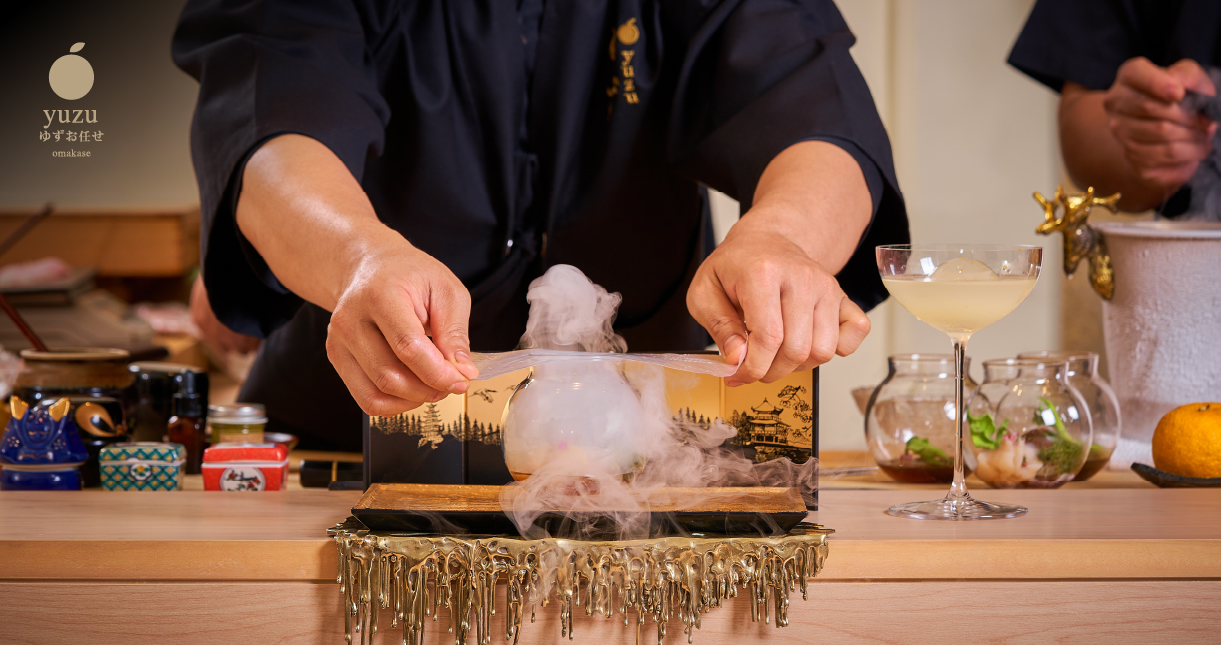
The influence of Japanese food culture continues to grow, shaping the way chefs and diners around the world approach food. From the emphasis on seasonality and freshness to the discovery of umami and the mastery of knife skills, Japanese cuisine has left an indelible mark on global dining.
At Yuzu Omakase, we are proud to uphold the traditions of Japanese food culture, offering an authentic yet innovative omakase experience that reflects both the past and the future of Japanese dining. Ready to experience the best of Japanese cuisine in Bangkok? Book your seat online at Yuzu Omakase and enjoy a dining experience that stays true to Japan’s rich culinary heritage.

RELATE







